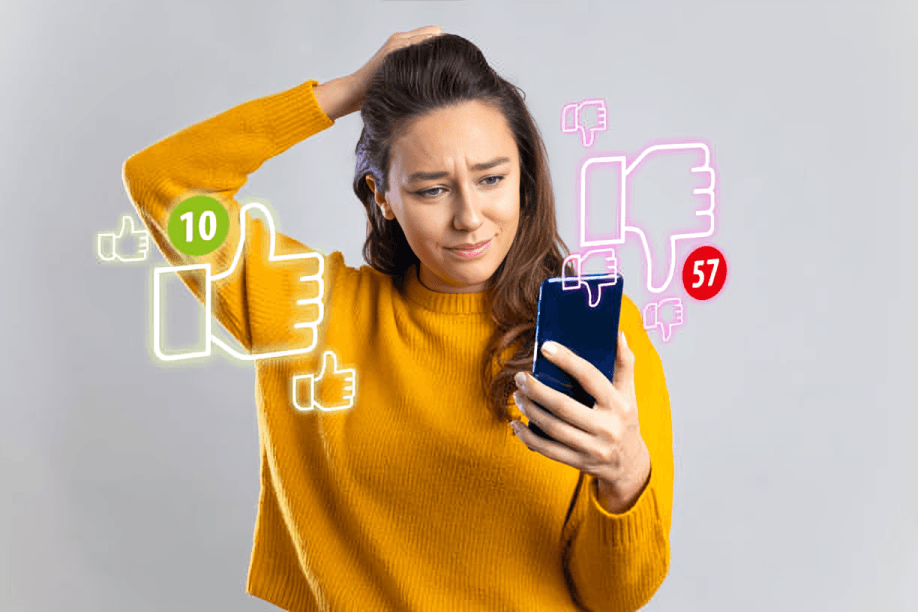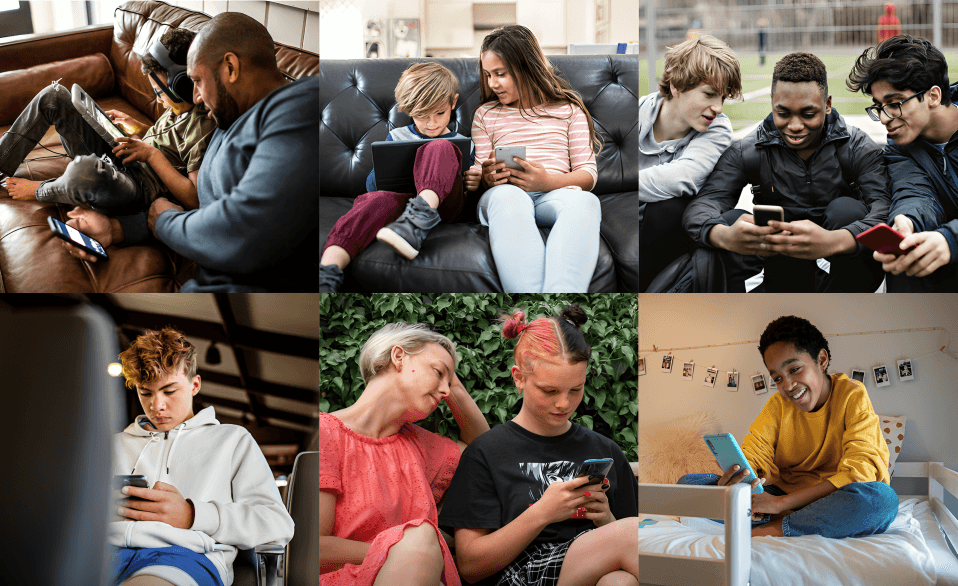
“
Social media overuse and comparison have become pervasive issues in our digital age. While these platforms offer connectivity, they also foster environments where individuals constantly measure themselves against curated portrayals of others' lives. Understanding the implications of social media overuse and comparison is crucial in navigating the digital landscape mindfully.1
1
”
Ancient philosophers like Socrates warned about the illusion of appearances, which mirrors how social media today promotes fake standards that users often compare their lives against, causing emotional unrest. 1
Overusing social media daily can disrupt brain function, especially in the prefrontal cortex, which controls decision-making and focus, leading to poor attention and weakened mental clarity. 2

Teenagers who frequently compare their lives to influencers report higher rates of anxiety and depressive thoughts due to unrealistic beauty and success expectations presented online.
Social media platforms are intentionally designed to exploit dopamine cycles, making users crave likes, reactions, and validation, which builds addictive habits and creates emotional dependence. 3
Many users unknowingly judge their self-worth based on likes, followers, and comments, damaging self-esteem and encouraging feelings of rejection when online engagement drops. 4
Prolonged comparison through social media can trigger "impostor syndrome," where individuals feel undeserving of success, thinking others have it better, smarter, or more figured out. 5
Fear of missing out (FOMO) arises when people see others enjoying events, traveling, or celebrating — often leading to envy, isolation, and dissatisfaction with one’s own life. 6
Social media users often spend hours editing selfies, altering their looks with filters and apps — this distorts real identity and causes insecurity when comparing to others’ edited appearances. 7
Overexposure to highlight reels of others’ lives causes users to devalue their achievements and moments, believing their real life is ordinary or less meaningful. 8

Passive scrolling without engagement has been linked to reduced happiness, whereas intentional interaction with friends boosts mood and reduces emotional detachment.
People addicted to social media may avoid real-life experiences, conversations, and responsibilities, damaging productivity, relationships, and personal development. 9
Many users feel pressure to post updates constantly, fearing irrelevance. This need for digital validation often disrupts peace and natural self-expression. 10
Children exposed to social media early are at higher risk of developing dependency and comparison behaviors during formative years, shaping their emotional development negatively. 11
Over time, constant comparison leads to “digital fatigue,” a state of emotional burnout where users feel drained, uninspired, and disconnected from both the online and real world. 12
Users in vulnerable emotional states often find themselves obsessing over others’ posts, spiraling into unhealthy thoughts that affect their mental wellness and self-belief. 13

Social media comparisons can affect academic and career confidence, especially when users see peers showcasing job offers, awards, or success, resulting in self-doubt.
Social media gives a false sense of connection; users feel surrounded but not emotionally supported, often leading to deeper loneliness than before they logged on. 14
Those with low self-confidence are more likely to compare their lives online, and repeated exposure makes them even more insecure, deepening the cycle of self-criticism. 15
Social media envy can fracture relationships; people might feel resentment or jealousy toward friends or family whose posts seem too perfect or overly successful. 16
Doctors and psychologists now emphasize digital detoxes, advising patients to reduce screen time and avoid comparison to improve mental clarity, inner peace, and emotional strength.17


